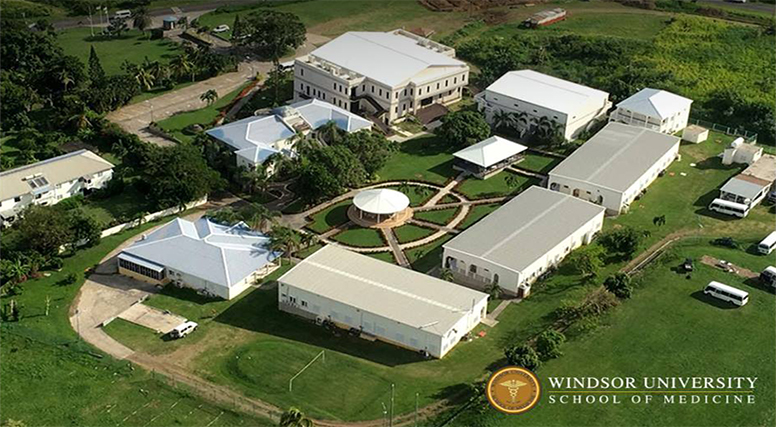

AN INNOVATIVE MEDICAL UNIVERSITY WITH DEDICATED FACULTY IN THE NEWZEALAND

New Zealand is World’s second most peaceful country as per Global Peace Index 2018 Its multi-cultural society shares the spirit of the Maori Principle Manaakitanga. Manaakitanga is all about caring for others with shared understanding and respect.
As a medical professional working in New Zealand, opportunities are spread throughout the country, in both rural and urban settings, across 20 district health boards.
There are a number of support systems for international students in New Zealand. Both universities have an international student support department, and each medical school has a regional medical students’ association, which aims to advocate on behalf of all its members. The New Zealand Medical Students’ Association (NZMSA) also provides a number of support systems for international students, as well as representing all medical students at a national and international level, and organising a wide range of events.
The purpose of this scope of practice is to provide students with a 2-year opportunity to train in New Zealand and gain knowledge and skills to take back to their own countries, or the country providing sponsorship.
During this postgraduate training program one can develop his clinical and research skills, gain first-hand experience in his field, get exposure to the various components of your scope of practice and work with mentors.
Additionally, you need to:
Students are given a personalized training plan with suggested reading. Their plan must include some or all of the following.
1. A program of education and training that may include:
2. A training schedule that will outline their
3. Your expectations
4. A log to record the medical education and training you have undertaken including:
5. Learning outcomes – you will need to agree to provide quarterly reports evaluating your training and progress made towards meeting your training objectives.
The Sydney Medical School offers a 7 year MD double degree, where students can opt for combined disciplines such as science, commerce, music, economics with medical science. The graduate MD program provides extensive clinical training, with exposure to clinical environments, along with research skills training.
Ranked in the 20 best universities for medicine, the University of Melbourne was the first medical school in Australia. Renowned for its leadership in health research and practice, the University of Melbourne medical school offers a reputed four year graduate entry MD program with a focus on anatomy, physiology and biochemistry.
The MU Medical School offers a four year MBBS Honors degree with an interdisciplinary program within biomedical sciences. It emphasizes clinical interaction, with early exposure to clinical environments (metro, rural and overseas) and case studies.
The Flinders Medical School pioneered a 4 year MD graduate entry degree breaking away from the traditional 5-6 year degree. They are driven by innovation, and build on capturing new ideas in the field of medical research. Students are trained in clinical skills using patients and well equipped simulation labs.
Deakin, one of Australia's top rated universities, is a leading educator with world class facilities committed to practical learning. It offers a four year MBBS degree, combined with clinical experiences, and rural health training.
After you graduate from a university in NZ, you become a housing officer for the next two years, i.e. the most junior doctor. Once you finish your run as a housing officer or a resident you become a Registrar, i.e. a junior doctor. Entry into training programs can take four or more years due to their competitiveness. Once you’re in, expect to train for another four to six years.
Placed #85 in the world, the University is the only New Zealand university in the top 100. The University of Auckland is also the highest ranked university in New Zealand for its global reputation amongst both academics and employers. Worldwide, the University ranks #60 for Academic and #129 for Employer Reputation.
The Medical course at the University of Otago takes six years and leads to the degrees of Bachelor of Medicine and Bachelor of Surgery (MB ChB). After admission to medical school students complete the second and third years of the course in Dunedin where they learn about the basic biomedical sciences and the normal and abnormal function of the body systems. Individual development, social influences on health and illness and the role of the doctor are also covered. Teaching is based around lectures, small group tutorials (which are often case-based) and laboratory classes. The final (clinical) years are completed at the Dunedin, Christchurch or Wellington School of Medicine. The focus of these years is on work in hospital wards, in general practices and other community settings.
ANUMS is a graduate medical school, and admissions are based on GPA and GAMSAT scores. It offers anMChD - a four year graduate entry degree, where students explore the foundations of medicine and healthcare in the Australian environment.
The Sydney Medical School offers a 7 year MD double degree, where students can opt for combined disciplines such as science, commerce, music, economics with medical science. The graduate MD program provides extensive clinical training, with exposure to clinical environments, along with research skills training.
Ranked in the 20 best universities for medicine, the University of Melbourne was the first medical school in Australia. Renowned for its leadership in health research and practice, the University of Melbourne medical school offers a reputed four year graduate entry MD program with a focus on anatomy, physiology and biochemistry.
The MU Medical School offers a four year MBBS Honors degree with an interdisciplinary program within biomedical sciences. It emphasizes clinical interaction, with early exposure to clinical environments (metro, rural and overseas) and case studies.
The Flinders Medical School pioneered a 4 year MD graduate entry degree breaking away from the traditional 5-6 year degree. They are driven by innovation, and build on capturing new ideas in the field of medical research. Students are trained in clinical skills using patients and well equipped simulation labs.
Deakin, one of Australia's top rated universities, is a leading educator with world class facilities committed to practical learning. It offers a four year MBBS degree, combined with clinical experiences, and rural health training.
The medical school offers a 5 year degree. The students have the option to complete their last two years at a clinical school. The school also offers a number of undergraduate and postgraduate courses in biomedical sciences, medical research, etc.
One of the most reputed schools in Australia, University of Queensland has one of the best medical education and research programs. Aside from an MBBS and a Bachelor of Paramedic Science degree, it also offers a number of post-graduate programs. The school also has tie ups with leading teaching hospitals and research institutes.
One of the oldest schools in Australia, University of Adelaide offers a a variety of graduate degrees including Bachelor of Health Sciences which focuses on a broad study of human health and a six year MBBS course.
JCU is acknowledged as Australia's leading tropical research school, with campuses in Australia and Singapore. The school of Medicine and Dentistry is the only school in north Australia that offers a full medical course. It offers an undergraduate MBBS degree and a post graduate Certificate of Research Methods with an emphasis on tropical medicine.
© Copyright 2023. All Rights Reserved.By Overseas Education Group